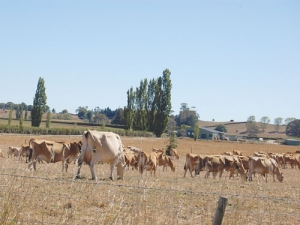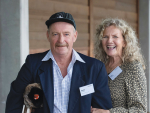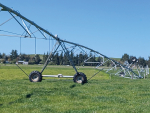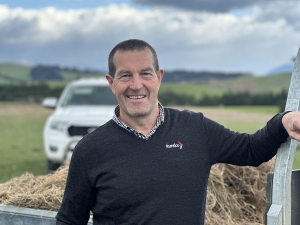The North Island does not have enough groundwater to irrigate, as does the South Island. Even if it did, given the dairy payout, irrigation is unaffordable.
Planting crops is expensive: spraying out pasture, tilling the soil and drilling in new crops, all cost money and time. Both are in short supply.
In the last seven-eight years in Waikato we have had five droughts. We need to plant pasture species that can thrive without a lot of summer rain. But all this still costs money. In addition, you have to move stock from your pasture paddock to your crop paddock on hot summer days, not enjoyable for stock or farmer.
Three years ago I managed a farm with a history of high nitrogen inputs and years of annual ryegrasses. There was little clover left and what was left was struggling.
And I observed some years later, while I did a season of planting maize on high input farms, there was almost no clover on these farms. This concerned me because clover contributes $2 billon to New Zealand agriculture every year at a cost of zero. NZ agriculture has relied on this from the start. Clover has thrived here and in other countries for 4.6 billion years and now modern agricultural practices have shut it down.
Ryegrass is a cool climate plant; it does not like hot weather. But clover will grow when soil temperatures are 9 degrees plus, and it grows in summer heat.
About 20 years ago, I was in Southern California in mid-summer and as usual it was hot and dry. Southern California has an annual rainfall of about 225mls, most of it falling in winter. I saw an empty suburban section where the native grasses had grown to about 1m. They had died off for the summer.
It was so dry it would have burnt like a torch. But then I noticed a plant I recognized – chicory, which grows wild in some parts of America. This lone chicory plant stood about 1.2m high, living off the night dew. I had planted chicory on my dairy farm two years earlier.
Now, given the challenge of low payouts, dry summers, cropping, changing weather patterns and trying to survive in an ever-changing world – here’s what I’ve done over the years to help introduce different pasture species. My first approach, 20 years ago, was simply sprinkling clover, chicory and plantain seed on top of two truckloads of fertiliser in the spring, which worked really well.
Then 15 years later on a Waikato farm I managed that had high inputs of nitrogen, I spread chicory at 0.5kg, red clover at 2kg, white clover at 1kg and plantain at 1kg. I mixed the seed with calcium and magnesium, and dusted this on the paddock before stock grazed it in mid September, here in Waikato.
If you live in Northland, you could do this early September. If you live in Southland, you could do it mid October. Hopefully the frosts have finished for the season.
Speed up the grazing rotation in the low 20 days for three rotations. Do not graze pasture below 1800kgDM. Watch that the existing pasture does not shade out young seedlings. This seed mix will cost you about $84/ha. Within two months you will see your farm change to a multispecies crop. This will halve your nitrogen leaching.
Chicory and plantain are high in tannins, a natural anti-bloating agent. It also helps control gut worms. Talk to an old school sheep farmer and he will tell you of putting late lambs on a paddock of dandelions after hay was cut. Within days, the lambs’ bums dry up and they start putting on weight. These old plant species produce tannins for free. The clover will give hundreds of kilograms of natural nitrogen in a plant and animal friendly form for free.
How do you achieve this when money is tight? Here is an example: a 100ha will cost $8400 (10-15 cull cows) to fund new pasture mix. Chicory will last three-five years under grazing and plantain, given a chance to reseed, will replenish itself.
Start enjoying what Mother Nature gives you free and stop polluting your most important resource – water.
• Snow Chubb, Cambridge, is a sustainable management consultant.


















